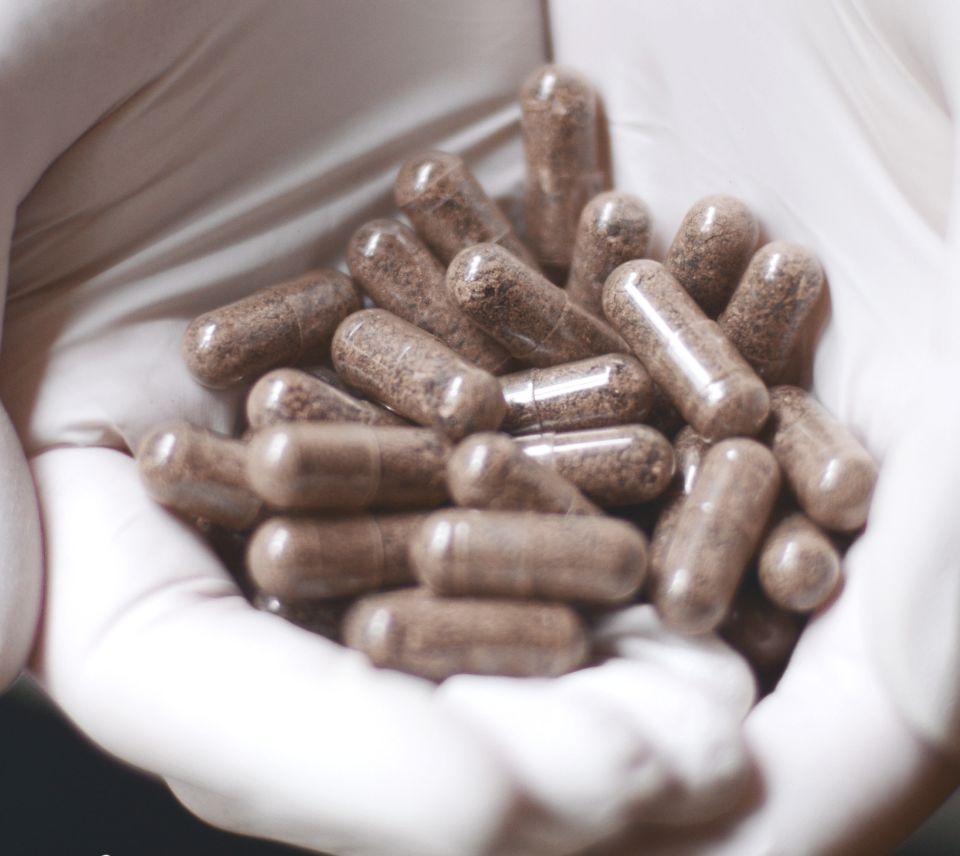Placenta Encapsulation - Sorting the reputable from the rogue
Since 2012, I've encapsulated the placentas of more than 1,250 local Perth mums for their postpartum transition and recovery.
Obviously, this is a service I can only provide locally. But frequently, I'm contacted by women around Australia asking me to recommend someone closer to them.
So if you're pregnant and considering having your placenta encapsulated, read on.
I don't go into detail here about the what, why and how of placenta encapsulation itself (you'll find this here).
Instead, consider it my 10-point, insider's guide to help you find the right person to encapsulate your placenta in your area.
It will give you the shortcuts to the credentials (and the red flags) to look out for as you do your research.
Placenta encapsulation is an unregulated industry
This means anyone can claim to be a provider and charge what they like. There is also no monitoring body to ensure they follow any rules or protocols whilst doing so.
Without regulation, anything goes. And I've seen some questionable things touted and shared by some over the years.
Without regulation, there are also no set expectations or standards of training.
Without regulation, there are no initial or ongoing requirements for certification, insurance, association membership, code of ethics/conduct, or continuing professional education (CPE).
There are no industry policies or guidelines. There is also no avenue for complaints for consumers.
As a result, consumers are left somewhat unprotected. Anyone can call themselves a 'placenta encapsulator' after watching somebody else perform the process. Or even after a few hours on YouTube or scrolling through the various placenta encapsulation Facebook groups (*gasp*).
Some businesses may employ and 'train staff' in the entire process in-house, with or without having completed any reputable training themselves.
“The most perturbing part of this is that placentas are a human blood product. Bloodborne infections are real, as is potential cross-contamination. We also can’t forget we’re dealing with a new mother and her baby here.”
So when performing this service for mother after mother, adequate knowledge and practices around placenta infections, sanitation, cross-contamination, bloodborne pathogens prevention, and food hygiene practices are critical.
And that's all before knowing the actual steps to processing the placenta for encapsulation itself!
I was around birth for many years before my interest in offering placenta encapsulation was sparked. Over the years, I'd picked up bits and pieces about placental rituals and using the placenta for a mother's wellbeing. But, completing credible training before offering it as a service was a complete no-brainer for me.
What to look for:
1. TRAINING & CERTIFICATION
If someone has completed reputable training, this should be obvious. It should be front and centre on their website and within their marketing. Highly regarded and well-known training organisations include APPA and IPEN.
If they don't have any certifications, ask why not? Where and from whom have they learnt everything?
For example: I initially trained in 2012 with Placenta Benefits (PBi), then I re-certified in 2016 with a new organisation (APPA) as the quality of training, research, and access to information had improved.
It's unethical (and illegal) to claim certification and/or current membership with an organisation by falsely using their name/logo on a website or any promotional material. Sadly, this happens. You can always check in with the organisation to confirm their credentials.
2. BLOODBORNE PATHOGEN (BBP) & COVID-19 TRAINING
BBP is typically part of the overall placenta encapsulation training. Anyone working with and/or providing a service involving a blood product should have this.
In March 2020, the Australian Government Department of Health released a COVID-19 Infection Control Training for health care workers in all settings. Although not compulsory, providers who have completed this show a proactive and conscientious approach.
As of late 2020, additional training in 'COVID-19 Resource and Strategies for Placenta Arts Specialists' was added to my renewal requirements with APPA.
I am also required to renew my BBP certification annually to maintain my membership with APPA.
3. FOOD SAFETY PRACTICES TRAINING
As the placenta is being transformed into a 'food product', it's important one understands how to recognise, control, and prevent potential food safety hazards from occurring with this. Sadly, common sense is not always common.
Examples of certificates to look out for are nationally recognised Food Safety or Food Handlers.
4. BUSINESS BASICS
Providers should be registered businesses, have an Australian Business Number (ABN) issued by the Australian Taxation Office, and hold current insurance for their services and products.
5. TESTIMONIALS
The words of others speak volumes. Most clients who've had a positive experience with the provider/business are happy to share it.
This may be about the actual service received and/or their personal experience of taking their placenta capsules during their postpartum.
Look for real testimonials or ask others whom they would recommend in your area and why.
6. STAFF
Is the person behind the business the person completing the placenta encapsulation? Or do they have others working for them?
If so, what training/certifications do they hold? Is it in-house or via an external, reputable organisation?
Is it clear...
Who will be collecting/transporting/handling your placenta from the hospital/place of birth to the workspace?
Who will be coming into your hospital room/birth space* for this?
Who will be completing the entire placenta encapsulation process?
Who will deliver* your capsules back to you?
*I know many women find this uncomfortable and a little invasive after giving birth. Especially as they've often never met this person. Then throw in the postnatal exhaustion, the boobs out, the unsettled baby... (you get the picture).
Are there options that respect your privacy a little more with placenta collection and/or delivery of capsules?
For example, I don't often enter a woman's birthing space to collect her placenta or to return her capsules to her. Be it at the hospital or at home. Perhaps it’s the doula - or the birthing mother - in me. I just don't consider it my space. If she invites me in, of course I'll pop in, yet I always keep it brief. But I never assume I'll be meeting her after the birth or within her postpartum space. Plus, there are various ways to collect a placenta and return placenta capsules. One option I offer is to return her capsules via overnight Express Post service to her home. This is my most popular option!
Providers that offer choice before or at the very least on the day, are aware and respectful of a woman's needs after birth. Just something for you to consider ahead of time.
7. FAQ
Most women looking into this service have lots of questions. Are the answers easily found on their website?
Do they provide clarification around any concerns you may have?
Is their communication clear, concise, timely, and responsive?
8. SAFETY MEASURES
This is important. How thorough is their intake/booking form? Have they asked about your health during your pregnancy? Any medical concerns or past/current blood-borne diseases? Any medications you're taking? These things matter.
What measures do they take to ensure safety at each step of the process? Is this clear and reassuring?
Do they provide you with a Placenta Kit or a branded cooler bag with full instructions for both you and caregivers?
If not, what do you need to do after the birth for placenta storage? Is this clear?
Do they specify what circumstances will deem proceeding with placenta encapsulation unsafe?
How do they ensure your placenta is not mixed up with another's?
What safety and sanitation measures are in place to address potential cross-contamination of bloodborne pathogens?
Do they wear full PPE or just gloves and an apron?
What are their cancellation and refund policies? These should be super clear and easy to find.
Have they completed the COVID-19 additional training (as mentioned above)?
9. CLAIMS & WORDING
It's so very common to see claims such as "beat the baby blues, increase your milk supply, prevent postnatal depression, rich in stem cells, increase your iron levels, increase your energy levels..."
Without the robust evidence to support such therapeutic claims, I believe it's simply dishonest and unethical to do so.
Under the Australian Government Department of Health Therapeutic Goods Act 1989, it states:
"... it is an offence to make therapeutic biological products without holding the appropriate licence. Products that are classed as therapeutic goods must also be approved by the TGA to ensure they are of good quality, safe, and effective for the intended purpose."
Placenta encapsulation providers can certainly report what clients tell them of their experience from taking their placenta capsules. But we cannot advertise, market, or claim particular results women will experience.
Yes, the anecdotal evidence is overwhelmingly positive, and yes, there has been some promising research conducted. But we still can't promote or claim any guarantee of efficacy in any area, for any client.
Often, those who tout such claims are revealing that they don't hold a reputable certification.
The same applies to 'prescribing' a dose of capsules to mothers. Unless the provider is also a medical practitioner, they can't actually 'prescribe' anything. Even as a Naturopath, I don't prescribe placenta capsule dosages. This is not a medicine or technically a therapeutic substance.
The provider should offer a suggested usage, relevant information about when they may want to decrease their dose, and the situations where they should stop taking the capsules altogether.
Placenta capsules should be called just that - capsules. They are not "placenta pills", or "placenta medicine", or a "placenta supplement".
As pedantic as this sounds, the language a provider uses around their services can tell you a lot about their level of learning and professionalism.
10. DISCLAIMER & FINISHED PRODUCT
A disclaimer about the service and the end products should be displayed on their website and/or in their booking processes.
It should also be on the bottle of placenta capsules/placenta tincture itself, along with the client's name, date prepared, best before date, suggested usage, and the provider's contact information.
I've seen basic kitchen jars with ribbons tied around them. No label, no identification, no instructions, no information, no cautions/warnings, and no disclaimer.
___________________________
Finally, what's your gut feeling?
After considering the 10 points above, what are your mama-bear instincts telling you? Tune into this whilst researching your options, and you'll know who feels right to you.
Read more about placenta encapsulation.



